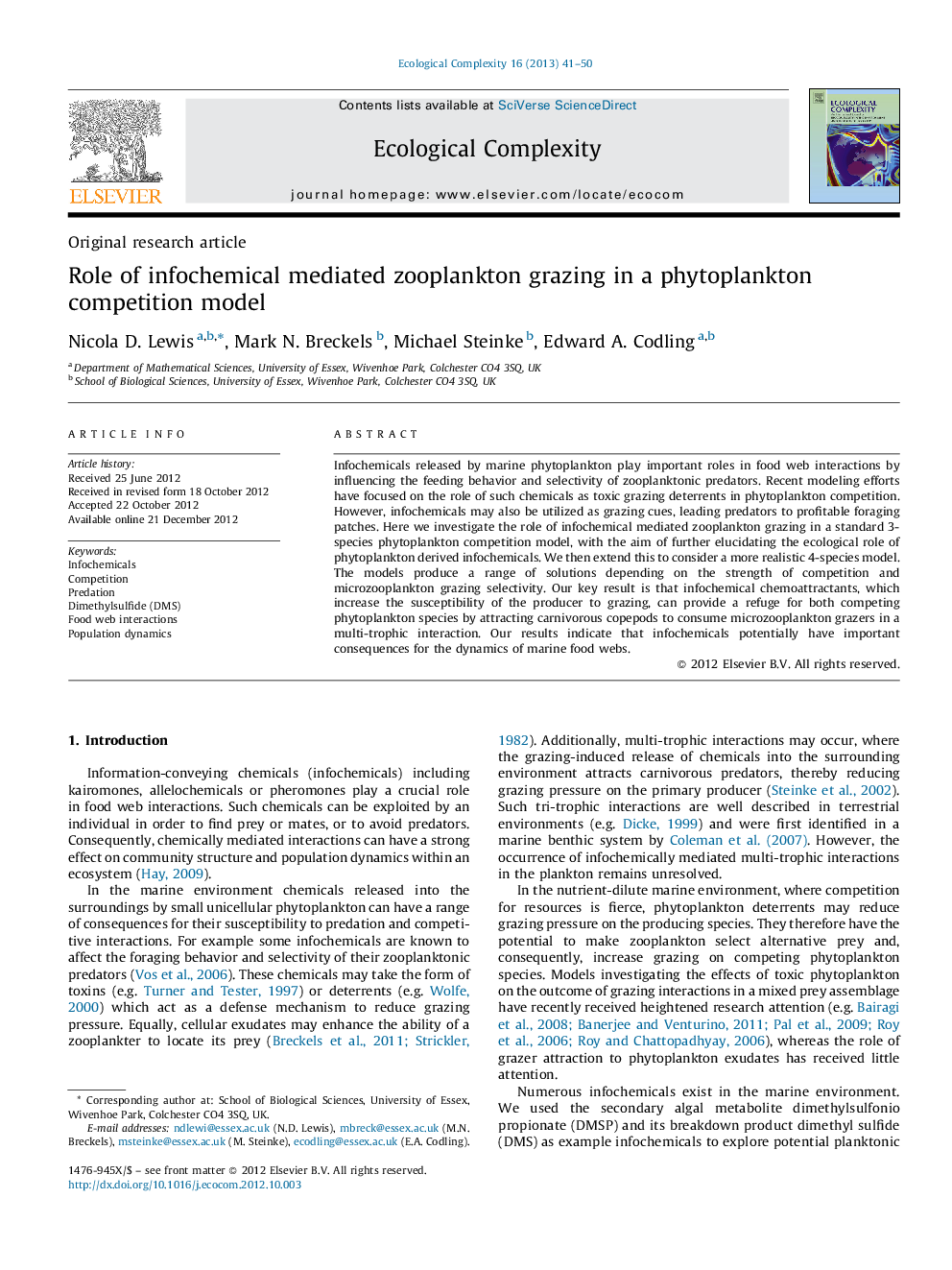| Article ID | Journal | Published Year | Pages | File Type |
|---|---|---|---|---|
| 4372508 | Ecological Complexity | 2013 | 10 Pages |
Infochemicals released by marine phytoplankton play important roles in food web interactions by influencing the feeding behavior and selectivity of zooplanktonic predators. Recent modeling efforts have focused on the role of such chemicals as toxic grazing deterrents in phytoplankton competition. However, infochemicals may also be utilized as grazing cues, leading predators to profitable foraging patches. Here we investigate the role of infochemical mediated zooplankton grazing in a standard 3-species phytoplankton competition model, with the aim of further elucidating the ecological role of phytoplankton derived infochemicals. We then extend this to consider a more realistic 4-species model. The models produce a range of solutions depending on the strength of competition and microzooplankton grazing selectivity. Our key result is that infochemical chemoattractants, which increase the susceptibility of the producer to grazing, can provide a refuge for both competing phytoplankton species by attracting carnivorous copepods to consume microzooplankton grazers in a multi-trophic interaction. Our results indicate that infochemicals potentially have important consequences for the dynamics of marine food webs.
► We model infochemical mediated predation in phytoplankton competition. ► Microzooplankton grazers were modeled to exhibit chemoattraction. ► Solutions depended on the strength of competition and selectivity. ► Chemical producers could persist with highly selective grazers but not generalists. ► Chemoattractants created a refuge from grazing through attracting higher predators.
